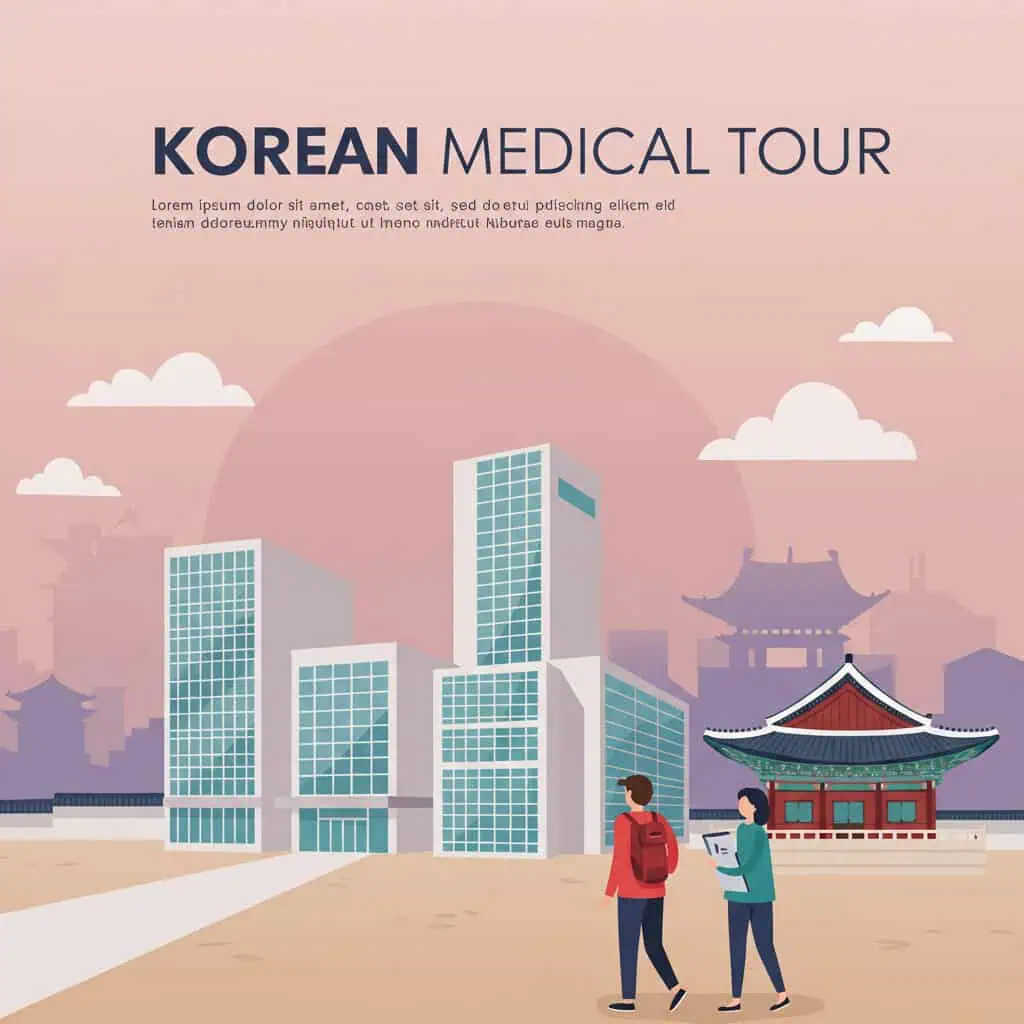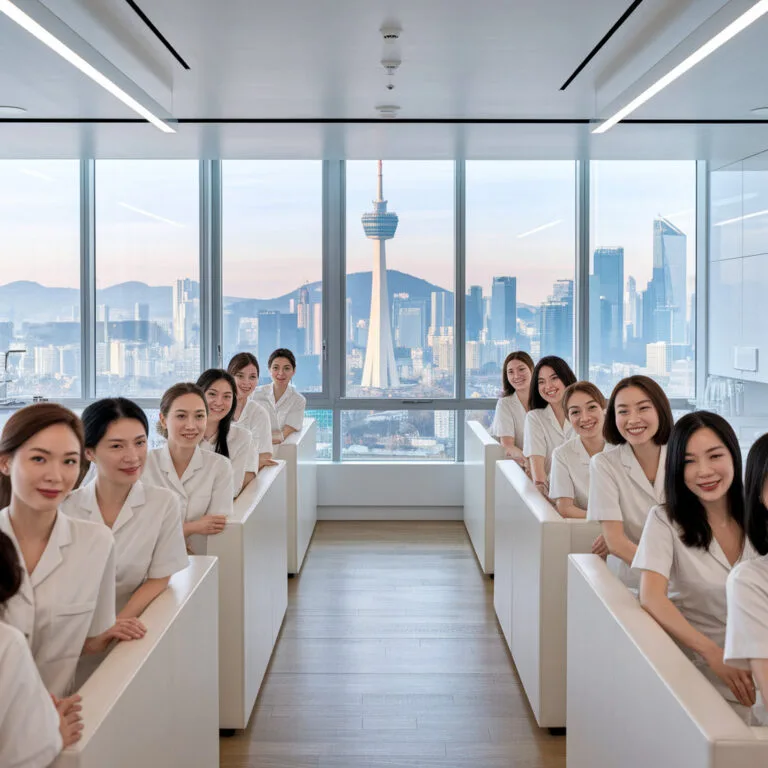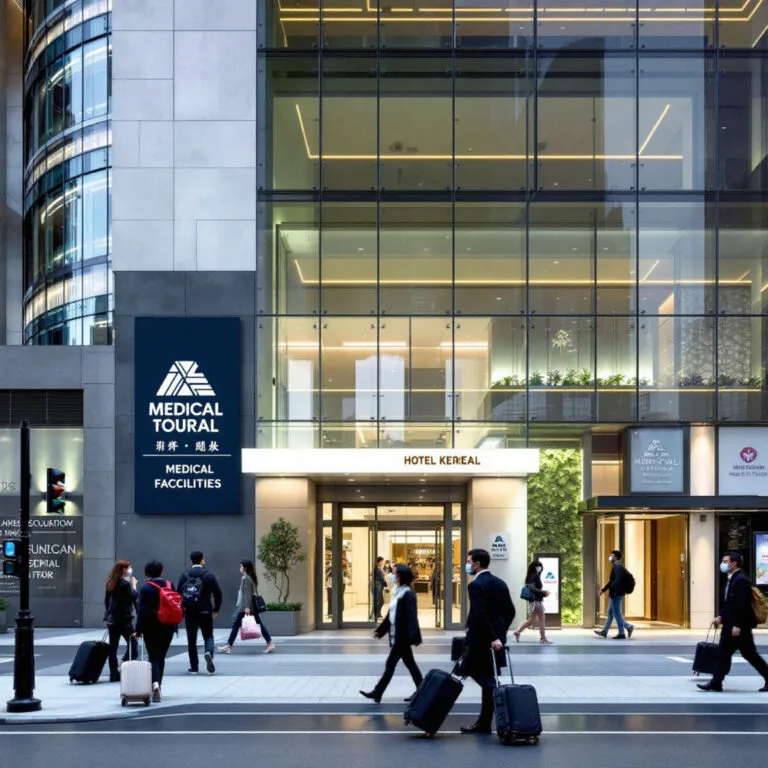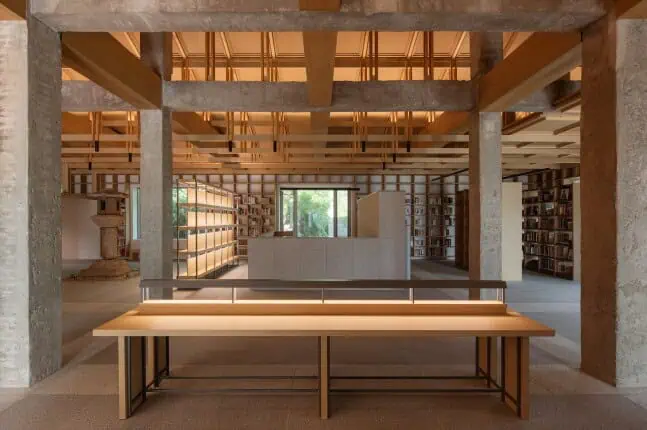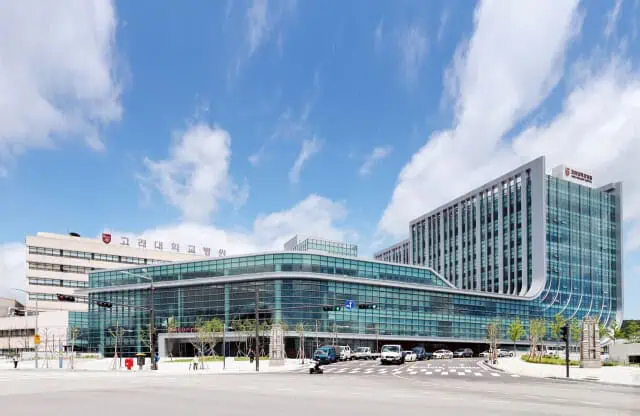PART 1: “What If a Hospital Visit Felt More Like a Vacation?”
Prologue: Meet Jay Kim, Your Storyteller
Hello there, I’m Jay Kim. While I’m not a doctor or a tour agent, I do consider myself an enthusiastic explorer of Korean Medical Tourism—a fascinating trend where people travel to South Korea for advanced healthcare and wind up discovering a whole lot more than just hospital corridors.
If your first reaction is, “Wait, a trip to the hospital can be fun?” then you’re in the right place. In this series, I’ll guide you through real-life experiences, insider tips, and some surprising benefits of mixing medical treatments with the wonders of Korean culture.
1. What Exactly Is Korean Medical Tourism?
In simple terms, Korean Medical Tourism means flying to South Korea for healthcare services—surgeries, checkups, cosmetic procedures, or rehab—and then diving into the country’s vibrant culture. Picture this: you get a thorough health screening in a state-of-the-art hospital, then spend the afternoon in a traditional teahouse or strolling around a historic palace in a Hanbok (Korean traditional attire). It’s a fusion of cutting-edge healthcare and a memorable vacation all in one go.
2. Why Is Everyone Talking About It?
You might wonder, “Why Korea? Aren’t there top-notch hospitals elsewhere?” Fair question. Here’s what I’ve gathered from countless interviews and reviews:
- Lightning-Fast Care
- South Korean hospitals are known for their efficiency. From MRI scans to robotic surgeries, you can often get everything done within days—no months-long waitlists.
- Bang for Your Buck
- Compared to medical costs in the U.S. or parts of Europe, South Korea can be more budget-friendly. Add top-quality service and advanced facilities, and you’re looking at serious value.
- K-Culture, K-Pop, K-Drama… You Name It
- After a checkup, why not refuel with authentic Korean BBQ or explore the neon-lit streets of Seoul? Visitors often say the cultural immersion helps them forget they’re “on a hospital trip.”
- Meticulous Support Systems
- International patient coordinators, airport pickups, hotel–hospital shuttle services, and interpreters in multiple languages. It’s a well-oiled machine designed to put patients (or “medical tourists”) at ease.
3. A Story From the Field: “Alice’s Surprise Turn of Events”

I recently came across a blog post by Alice, a New Yorker who once dreaded stepping foot in any hospital. She was persuaded by her sister to explore Korean Medical Tourism for a spine issue. Here’s what she shared:
- Pre-Trip Teleconsultation
She sent her MRI scans to a South Korean hospital and had a video session with a specialist. To her amazement, they offered a detailed treatment plan before she even booked her flight. - Seamless Arrival
Upon landing at Incheon Airport, she was greeted by a private pickup service arranged by the hospital. No confusion, no language barriers—just a stress-free ride straight to her consultation. - Recovery, Then Real Fun
After a successful procedure, Alice used her recovery days to explore local markets, try on a Hanbok, and even sample street food like hotteok (sweet pancakes). She joked, “Am I here to recover, or to become a travel vlogger?” - The Verdict
For Alice, what started as a nerve-wracking medical need turned into a memorable cultural escapade. She left Seoul pain-free—and with a camera roll full of photos and stories to tell.
4. The Numbers Don’t Lie
Statistics from the Korea Health Industry Development Institute (KHIDI) show a steady rise in foreign patients visiting for treatments ranging from cancer and cardiac care to plastic surgery and wellness programs. With the growing popularity of telemedicine and AI diagnostics, many travelers arrive already primed for a smooth, well-planned experience.
5. Is Korean Medical Tourism for You?
You might be the perfect candidate if:
- You want a comprehensive health check done in a short window of time.
- You’re interested in top-tier medical care without the sky-high costs you might face elsewhere.
- You secretly (or not so secretly) dream of immersing yourself in K-Pop, K-Drama, or mouthwatering Korean cuisine.
- You’re ready to let a new culture transform a traditional hospital visit into something far more exciting.
6. What’s Next: Diving Deeper
In our next installment, we’ll explore specific medical specialties that set South Korea apart—from advanced cancer therapies to pioneering plastic surgery techniques. We’ll also look at how to pick the right hospital and plan a schedule that balances both treatment and travel.
If you’ve only associated South Korea with K-Beauty, buckle up. You might be surprised at the range of treatments and services on offer.
7. Final Thoughts: Ready for a Hospital Visit That Feels Like a Holiday?
Medical procedures can be daunting, but Korean Medical Tourism aims to redefine that experience. As your storyteller, I’m here to share hidden gems, heartfelt testimonials, and practical know-how that could turn your next hospital trip into an unforgettable cultural journey.
Questions? Let’s Connect
- Comment below or send me a message.
- Email: official@koreadiscovernow.com
Stay tuned for more insights on how to get the best of both worlds: top-level medical care and immersive K-Culture. If you don’t want to miss Part 2, be sure to follow or subscribe!
🤔 Frequently Asked Questions 🤔
🔗 Suggested Internal Link Subheadings
- Top 5 Seoul Beauty Clinic Guide 2025: Top Choices for International Visitors🔗
- Gangnam Medical Tourism Guide 2025: Free Interpreter, Airport Pickup & More!🔗
- Hotels Near Gangnam Medical Center: Complete Guide for Medical Tourists
1. Government & Public Institutions
- Ministry of Health and Welfare (English Homepage)
The primary government body overseeing healthcare policy in Korea. Check here for official updates on medical tourism regulations and guidelines. - KHIDI (Korea Health Industry Development Institute) – Medical Korea
Publishes reports, statistics, and promotional materials related to Korean Medical Tourism. Operates the “Medical Korea” brand to support global awareness. - Korea Tourism Organization (KTO) – VisitKorea: Medical Tourism
Official tourism site featuring hospital listings, procedure guides, and travel tips specifically for international medical visitors.
2. Local Government Medical Tourism Sites
- Seoul Metropolitan Government – Medical Tour Seoul
Offers info on Seoul-based hospitals, concierge services, and cultural activities you can enjoy alongside your treatment. - Gangnam Medical Tour
Focuses on the Gangnam district’s medical facilities (particularly known for plastic surgery and skincare). Provides detailed visitor support and local insights.
3. Major Hospitals & International Clinics
- Asan Medical Center (English Website)
One of Korea’s leading hospitals, offering an international clinic with specialized coordinators for overseas patients. - Samsung Medical Center (English Website)
Renowned for cancer treatments, cardiac care, and advanced surgical techniques. Provides step-by-step guides for international visitors. - Yonsei Severance Hospital – International Health Services
One of the oldest Western-style hospitals in Korea, JCI-accredited, and well-known for its patient-centered care.
4. Additional References
- JCI (Joint Commission International)
Global accrediting body for hospitals. Many top Korean facilities hold JCI accreditation, a key indicator of quality and safety. - Medical Tourism Association (MTA)
International organization offering news, research, and industry insights on medical tourism worldwide.
Feel free to explore these links for up-to-date stats, hospital details, and official guidelines on Korean Medical Tourism. Checking multiple sources will help you get a comprehensive and accurate view of the medical services and cultural experiences awaiting you in South Korea!

